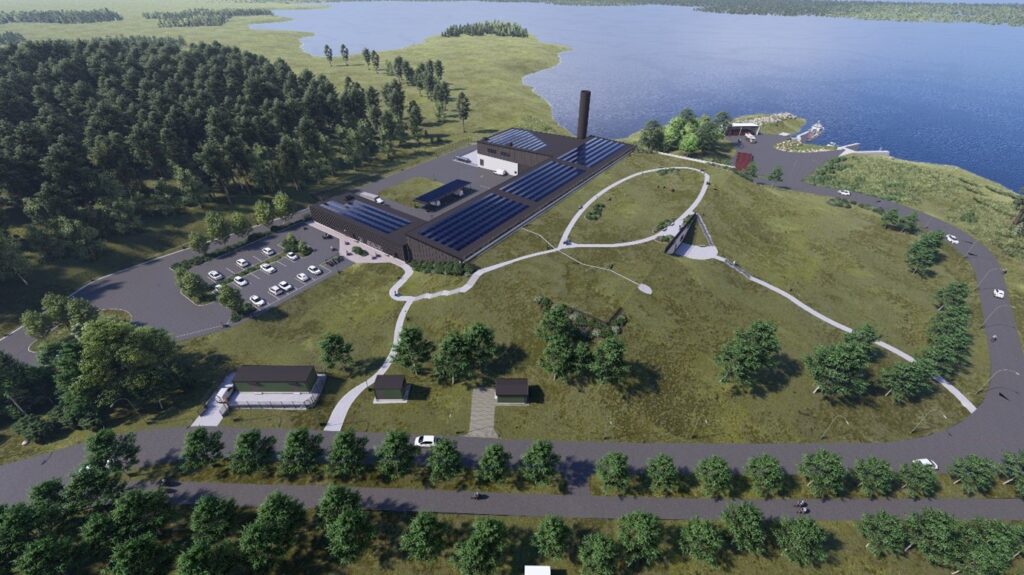Roslagsvatten invests in pyrolysis
Sweden's first pyrolysis plant at a wastewater treatment plant will be built at Magretelund's WWTP in the municipality of Österåker.
We have asked Aleksandra Lazic, development engineer at Roslagsvatten AB, a couple of questions about investing in sludge pyrolysis.
What are you going to build?
– Roslagsvatten is building a new wastewater treatment plant in Margretelund in Åkersberga. The wastewater treatment plant must ensure the wastewater treatment for the municipalities of Österåker and Vaxholm.
How will you handle the sludge at the treatment plant?
– We will not digest the sludge but dry and pyrolyse the sludge directly.
Why did you choose pyrolysis, and AquaGreen as a supplier?
-The fact that we can cooperate with AquaGreen as a supplier of the pyrolysis plant will lead to a significantly higher fulfillment of our sludge vision and our requirements for climate and environmentally friendly resource recycling than with other technical solutions. By choosing sludge biochar, you will contribute to eleven of the UN’s global goals for sustainable development.
What temperature and retention time do you have in mind?
– The process that will be used in the new plant consists of two steps: 1) drying of dewatered sludge for 2 h at 200 ᵒC and 2) pyrolysis of dried sludge for 20 min at 650 ᵒC. Everything takes place in an oxygen-free environment and the entire system is compact and closed, which eliminates problems with odors and dust.
What do you think about the utilisation of sludge biochar?
-The final product, the sludge biochar, is odorless, dry and of very high quality. The sludge biochar is completely hygienic and at the same time contains good levels of phosphorus, which enables the direct use of the sludge biochar on arable land as fertiliser.
When is it supposed to be finished and put into operation?
– The plan is to start producing sludge biochar in the fall of 2025. The facility is to be taken over in the spring of 2026.
Can you say something about the financial conditions?
– Roslagsvatten has received a grant from Klimatklivet, the Swedish Environmental Protection Agency’s investment support for fossil-free future technology and green transition. The grant is SEK 53.5 million, which is 40 percent of the estimated cost of the sludge treatment part of the new treatment plant.

